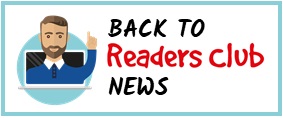“Obstacles are those frightful things you see when you take your eyes off your goal.”
Henry Ford
My other half has a habit of introducing me to new card games without telling me all the rules or how to win. There’s one we played where before I even knew what I had in my hand, all his cards are on the table and he’d claimed victory. We don’t play that game anymore.
The thing is, it’s harder to achieve anything if you don’t know what you’re trying to achieve.
For people struggling to make ends meet, setting a goal or two could be the difference between getting by and going short. The goal could be as simple-sounding as ‘making up what I lose in Bedroom Tax’, ‘finding the extra to cover the TV licence’ or even ‘scraping together £300 for a little holiday’. Once we know what we’re working towards, it’s a different ball game.
I say ‘simple-sounding’ because I know the hard work starts after setting the goal. But it’s actually shocking how naming what we want to do can quickly lead to how we can do it. It has magic in it.
I work a lot with jobseekers and one of the things we focus on is finding the right goals. Many come in saying they’d be happy with any job, so I ask them: “If I offered to pay you to clean the toilets, would you do it? Or hand out leaflets in the pouring rain? Or typing in boring numbers on a computer?” Some will do one of those, no-one would do all of them.
So, we start by looking at what will get them out of bed in the morning, what they’d be good at and what roles they will start working towards today.
Once they pin down ‘working with animals’, for example, the world is suddenly awash with training or jobs like volunteer roles in a rescue centre, training at the city farm or paid work on a dairy farm.
We can take the same approach to managing our money. We all have goals, it might be we just don’t say them out loud. Telling people our goals or writing them down works the same way as when people on a diet put their least favourite photo of themselves looking fat on the fridge.
Once we name our goals, it’s time to go down the list of all we spend on and think about what can be cut. Account for every penny by checking through the bank statement and if a lot has gone out in cash, make a point of writing down what goes out over a fortnight using a notebook or free app (there are loads).
We might not need to cut back so much, though, if can we bring in any extra? Could we sell old toys or clothes or stuff we’ve made – online or at a car boot sale, for instance? If we have a spare bedroom or an unused garage, could we take in a lodger or rent out the space?
I’ll save a full run down of how to create a budget with some leftovers to put towards our goals for another time but you could start with a look at the budget planner we have on our website.
At this point I should also make the point that if there is no way to cut back and achieve our goals, one of two things is needed: Either our goals need reducing down or we need to find advice. If setting a goal does nothing but make us realise we need help, that’s a good thing too – we might never have noticed otherwise.




